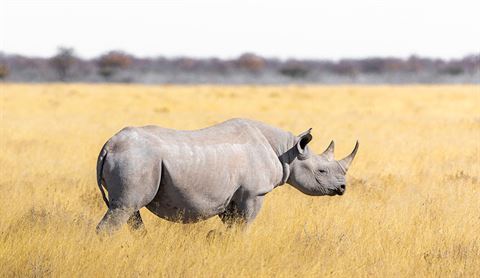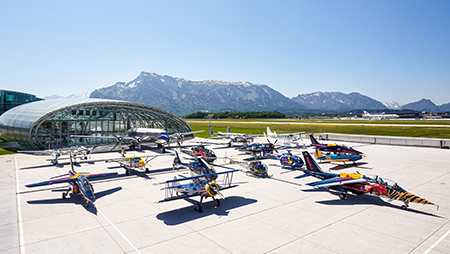September 2024
Wildlife trafficking in the skies
There is a dangerous world of wildlife trafficking in the skies – and here’s what we’re doing to fight it
At British Airways, we’re working hard to eradicate the illegal trade in endangered species, which is the fourth largest criminal market in the world today. It takes place on every urbanised continent of the world and pushes protected wildlife closer to extinction, depletes natural resources and harms animals and plants.
Understanding that wildlife trafficking moves through the aviation industry is vital for us to put plans in place to prevent it. Data on seizures shows us that wildlife trafficking networks can rely on the same transport methods over time, often with the same airport pairings. Being aware of this is key for us to be able to combat these networks and reduce the risk within aviation.
To this end, we, along with 78 other airlines and several other aviation stakeholders, are among the signatories of the Buckingham Palace Declaration. This declaration, set up in 2016, underlines the aviation industry’s commitment to helping end the trade of wildlife.

As a member of the United for Wildlife Transport Taskforce, we’re committed to developing a secure system to share information and credible intelligence with customs and law enforcement agencies about high-risk routes and methods of transportation. This includes hosting regular roadshows within our facilities - in partnership with the Border Force - to educate our colleagues about these routes.
And we’re currently implementing new procedures, as part of our BA Better World sustainability programme, to enable our teams to spot and report suspicious incidents, ensuring information gets to the right people quickly.
We’re also creating resources that all our colleagues can access to help combat wildlife trafficking, if they come across it in their role or on their holidays. We are also pointing colleagues towards expert third-party resources, such as the Routes Dashboard and country assessments. These resources show the areas of highest risk for both individual countries and routes between countries.
Did you know: we have a dedicated network of more than 100 ‘wildlife champions’ within British Airways? Spanning our global colleague base, from our pilots to cabin crew and operation teams, our champions are raising awareness and even developing bespoke communications to help fight trafficking.
“I became a wildlife champion because I care about the flora and fauna of our planet,” says cabin crew Siobhán Penny. “They deserve the right to stay safe and free in their country of origin. This, in turn, will also hopefully help stop the spread of diseases from country to country, affecting native species.”
Meet Sam, a BA Better World Wildlife Champion
Wildlife trafficking: the facts
One rhino is killed every seven hours for purposes of illegal wildlife trafficking.
Ivory, reptiles, birds and rhino horn together represent 66% of trafficked products.
The most common categories of wildlife trafficking include:
- Live wildlife for the illegal pet trade, most commonly reptiles and birds.
- Wildlife parts for medicine, decoration or jewellery. This includes elephant ivory, rhino horn, pangolin scales and the skin of different species.
- Live or processed wildlife for human consumption, such as turtles, tortoises and lizards.
This article has been tagged BA
More from previous issues

Autumnal Avios events calendar
Top up your Avios piggy bank this winter by following our Avios-collecting events calendar

The best of BA news
The latest updates from High Life Café and our lounges, and a quick chat with London Essentials

Going for Gold: the online content creator
Gold Member Esther Areola on advice for serial over-packers and how she inspires her social media audience to travel better

Where to find the must-see exhibits for AV lovers
Calling all aerophiles, add these five out-of-this-world aviation museums to your bucket list